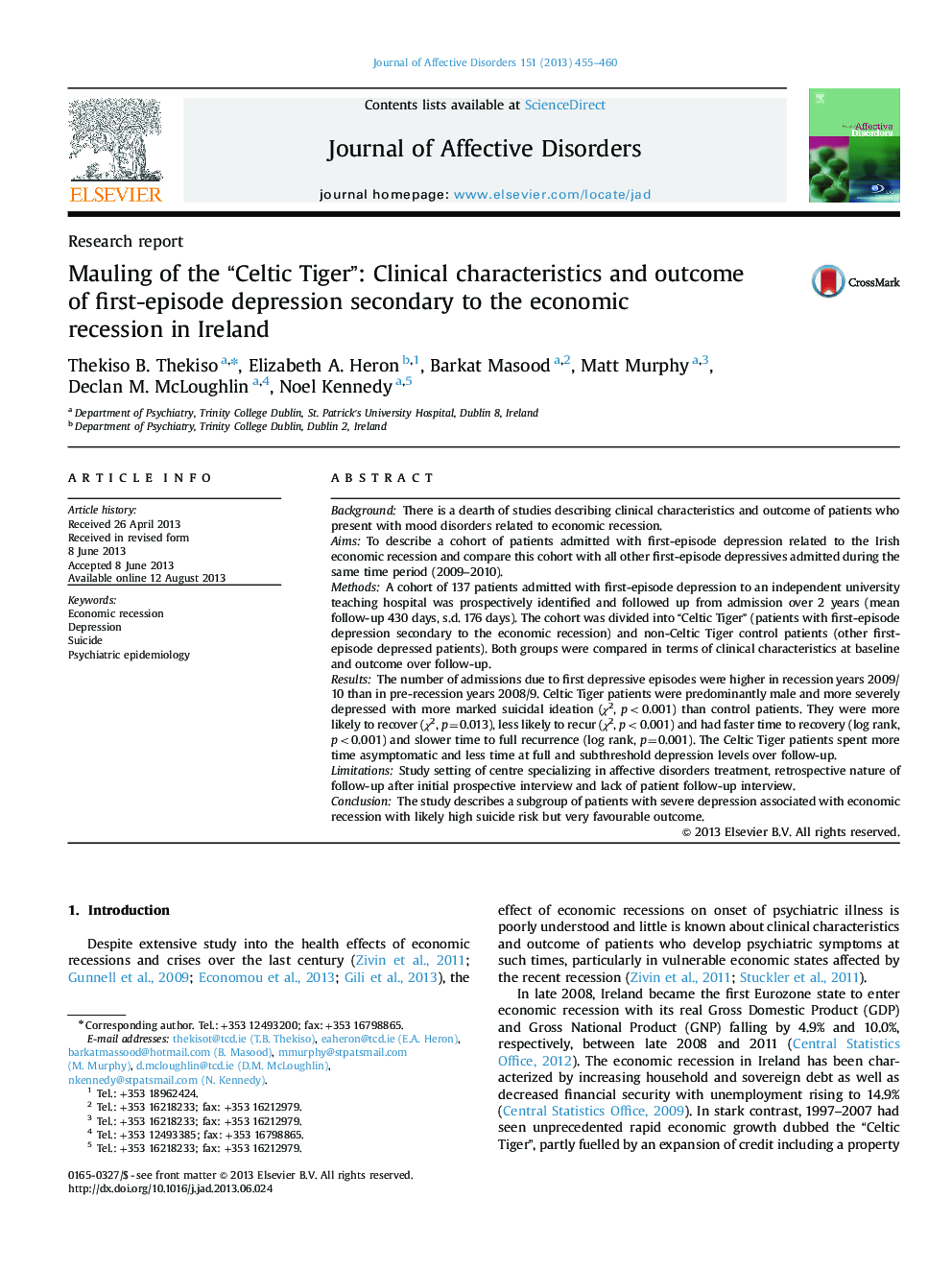| Article ID | Journal | Published Year | Pages | File Type |
|---|---|---|---|---|
| 6233888 | Journal of Affective Disorders | 2013 | 6 Pages |
BackgroundThere is a dearth of studies describing clinical characteristics and outcome of patients who present with mood disorders related to economic recession.AimsTo describe a cohort of patients admitted with first-episode depression related to the Irish economic recession and compare this cohort with all other first-episode depressives admitted during the same time period (2009-2010).MethodsA cohort of 137 patients admitted with first-episode depression to an independent university teaching hospital was prospectively identified and followed up from admission over 2 years (mean follow-up 430 days, s.d. 176 days). The cohort was divided into “Celtic Tiger” (patients with first-episode depression secondary to the economic recession) and non-Celtic Tiger control patients (other first-episode depressed patients). Both groups were compared in terms of clinical characteristics at baseline and outcome over follow-up.ResultsThe number of admissions due to first depressive episodes were higher in recession years 2009/10 than in pre-recession years 2008/9. Celtic Tiger patients were predominantly male and more severely depressed with more marked suicidal ideation (Ï2, p<0.001) than control patients. They were more likely to recover (Ï2, p=0.013), less likely to recur (Ï2, p<0.001) and had faster time to recovery (log rank, p<0.001) and slower time to full recurrence (log rank, p=0.001). The Celtic Tiger patients spent more time asymptomatic and less time at full and subthreshold depression levels over follow-up.LimitationsStudy setting of centre specializing in affective disorders treatment, retrospective nature of follow-up after initial prospective interview and lack of patient follow-up interview.ConclusionThe study describes a subgroup of patients with severe depression associated with economic recession with likely high suicide risk but very favourable outcome.
